Photos: NASA's Small Rocket Launches of 2013 in Pictures
NASA Fourth of July Launch: Liftoff
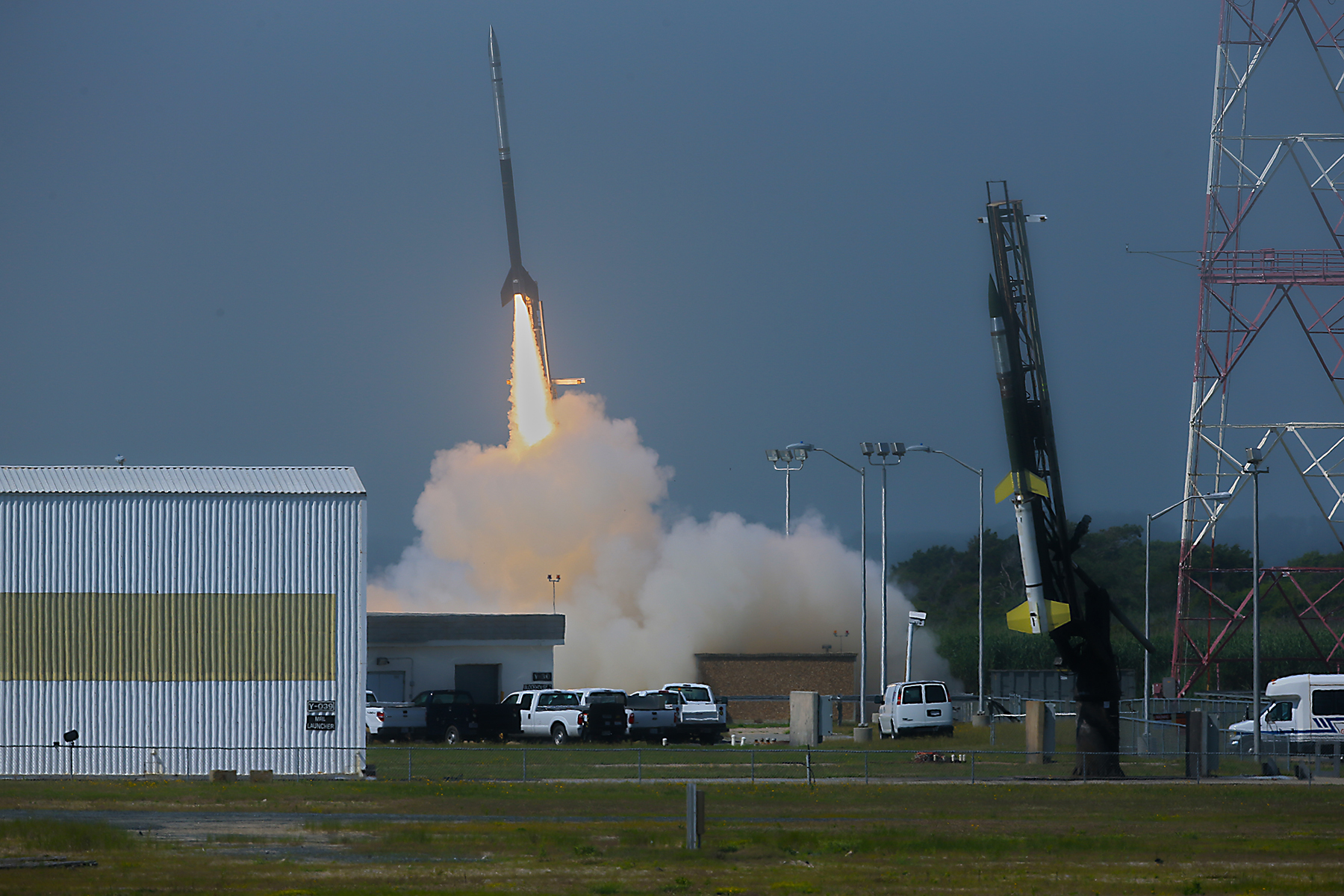
A NASA Black Brant V sounding rocket launches from the agency's Wallops Flight Facility on Wallops Island, Va., at 10:31:25 a.m. ET on July 4, 2013. The rocket was the first of two to launch in support of the Daytime Dynamo experiment. The Terrier-Improved Orion (foreground) was launched 15 seconds later. [Read the Full Story]
Contrails Over Wallops
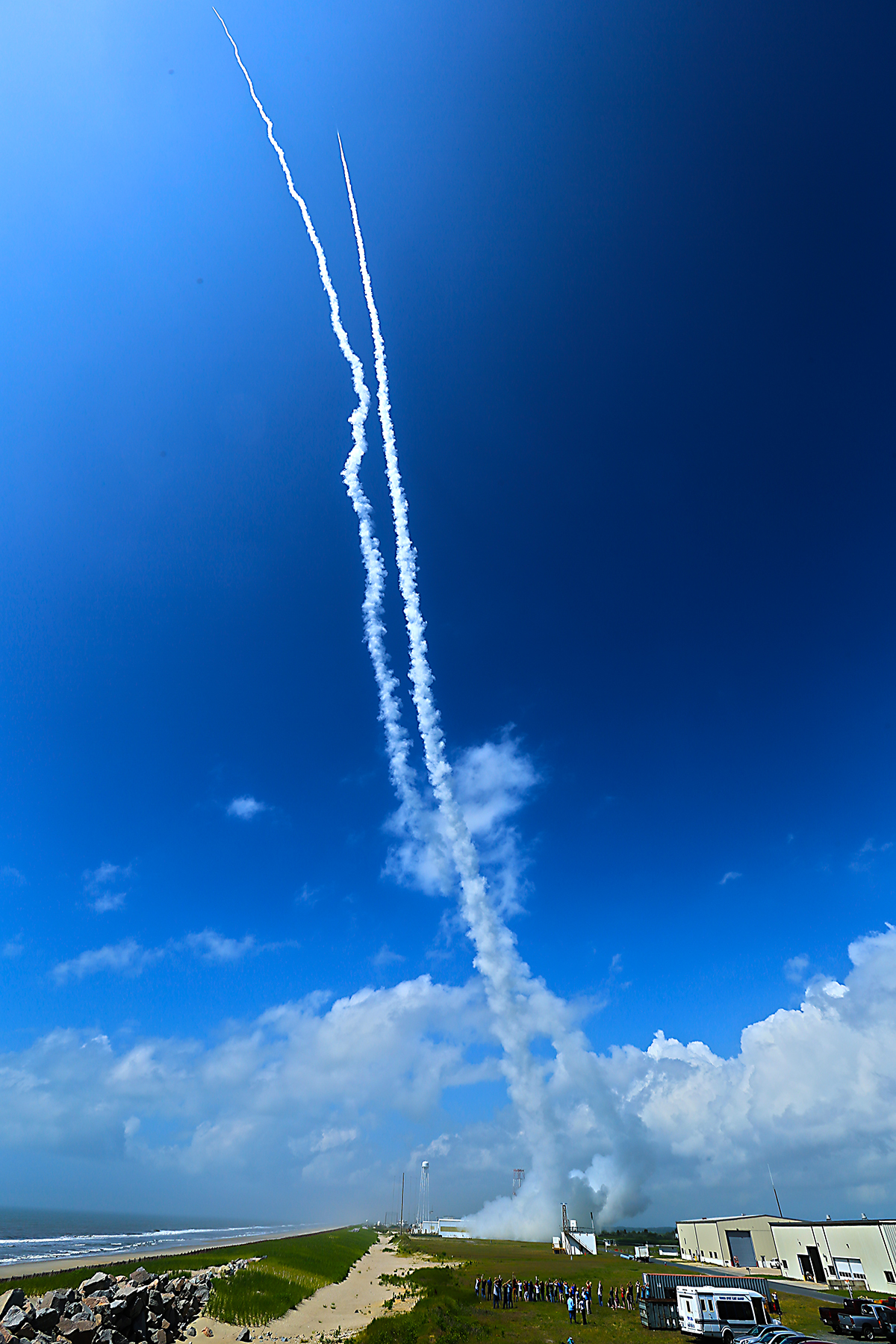
Contrails line the sky over Wallops Island, Va., on July 4, 2013 after two sounding rockets launched 15 seconds apart as part of the Daytime Dynamo experiment. A NASA Black Brant V was launched at 10:31:25 a.m. and was followed 15 seconds later by a Terrier-Improved Orion. [Read the Full Story]
NASA Fourth of July Rocket Launches
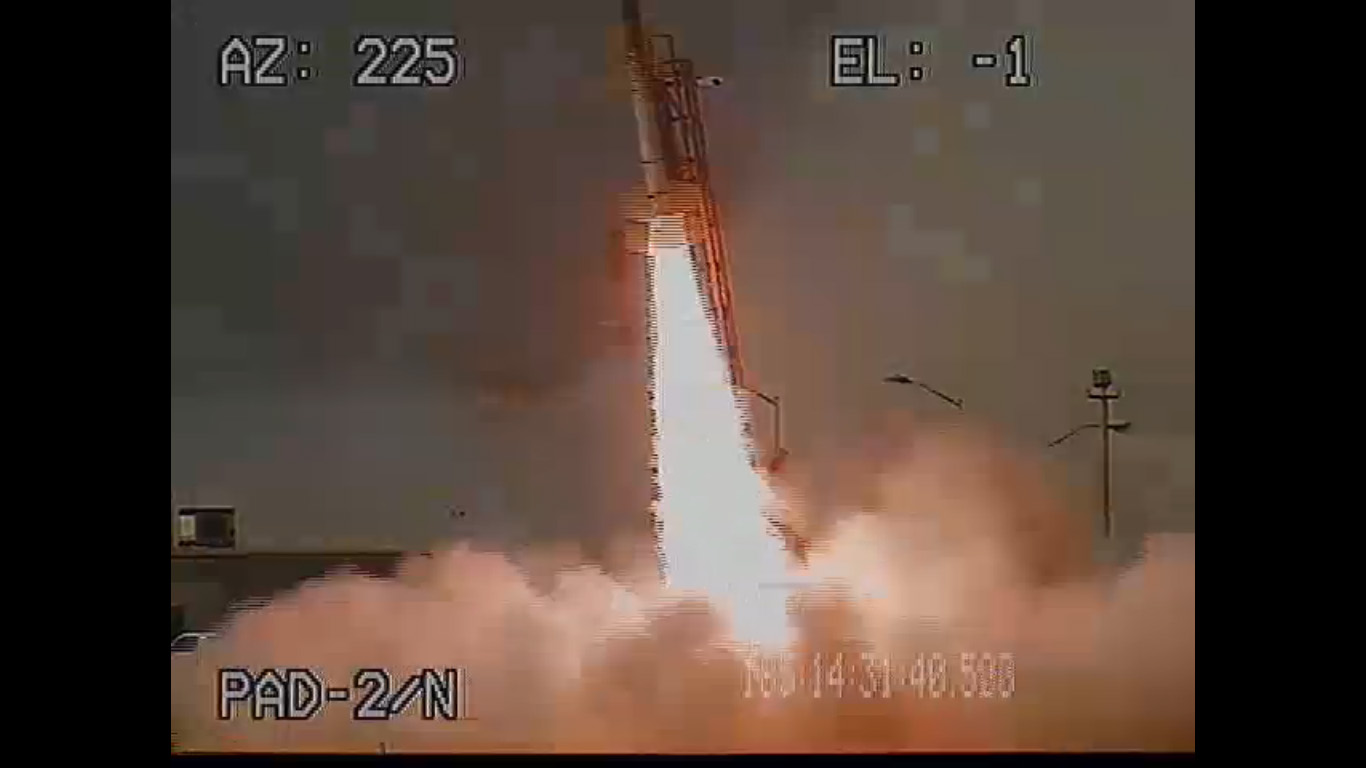
One of two small sounding rockets launches from NASA's Wallops Flight Facility on July 4, 2013, just in time for the Fourth of July holiday, as part of the Daytime Dynamo mission to probe Earth's ionosphere. Here, a Terrier-Improved Orion sounding rocket zooms from its Wallops Island, Va., launch pad. [Read the Full Story]
First of Four Sounding Rockets Launched from the Marshall Islands
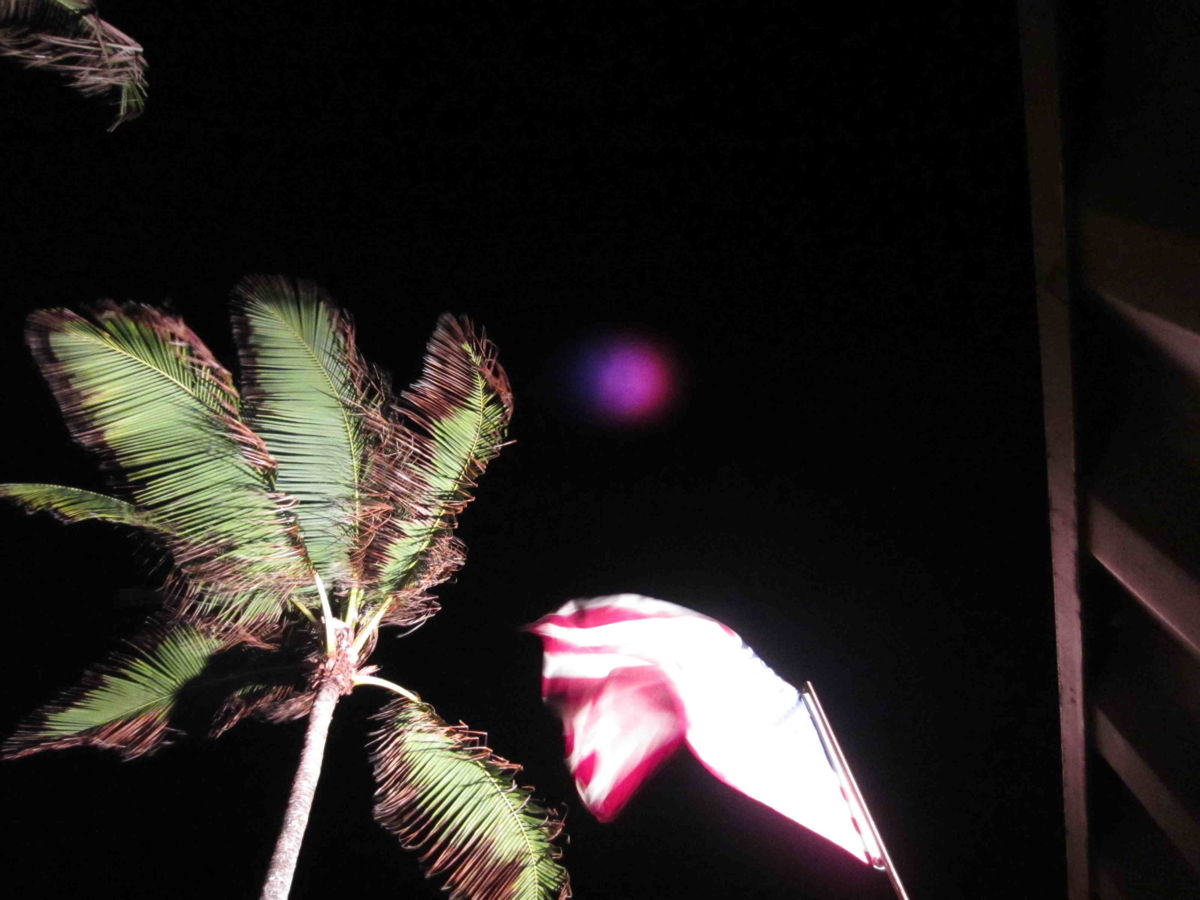
The Metal Oxide Space Cloud Experiment (MOSC) released a Samarium vapor into the atmosphere minutes after its launch from the Marshall Islands creating a red cloud of charged particles in the ionosphere. Launch took place on May 7, 2013.
Terrier-Improved Orion Rocket Launches
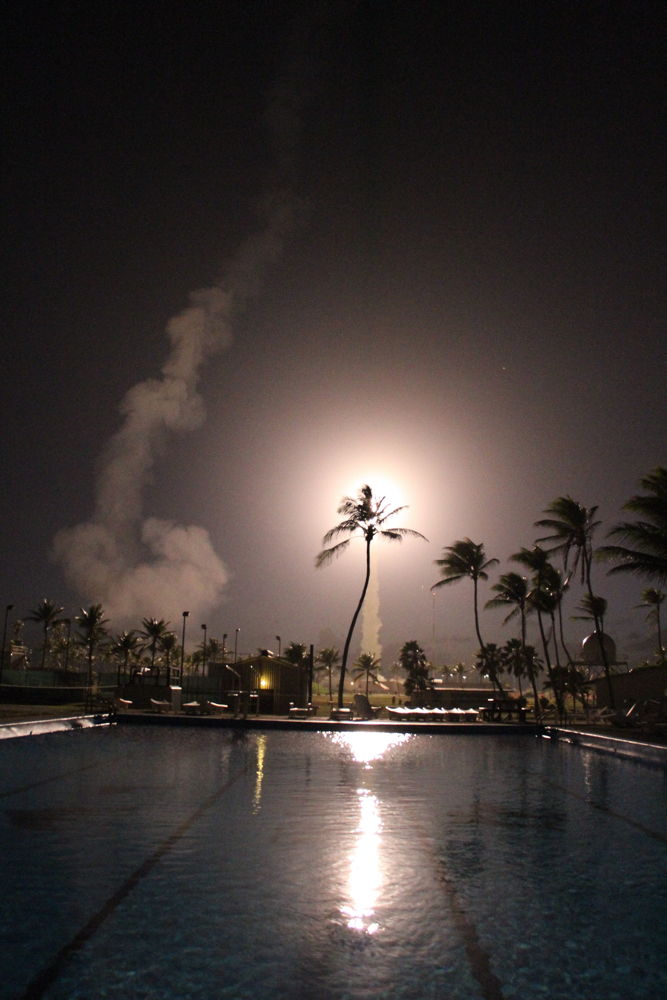
A NASA Terrier-Improved Orion sounding rocket leaves the launch pad at Roi Namur, the Republic of the Marshall Islands, as part of the Equatorial Vortex Experiment (EVEX). The rocket was launched 90 seconds after a Terrier-Oriole sounding rocket as part of a study of post-sunset solar storms. Launch took place on May 7, 2013.
NASA’s Equatorial Vortex Experiment
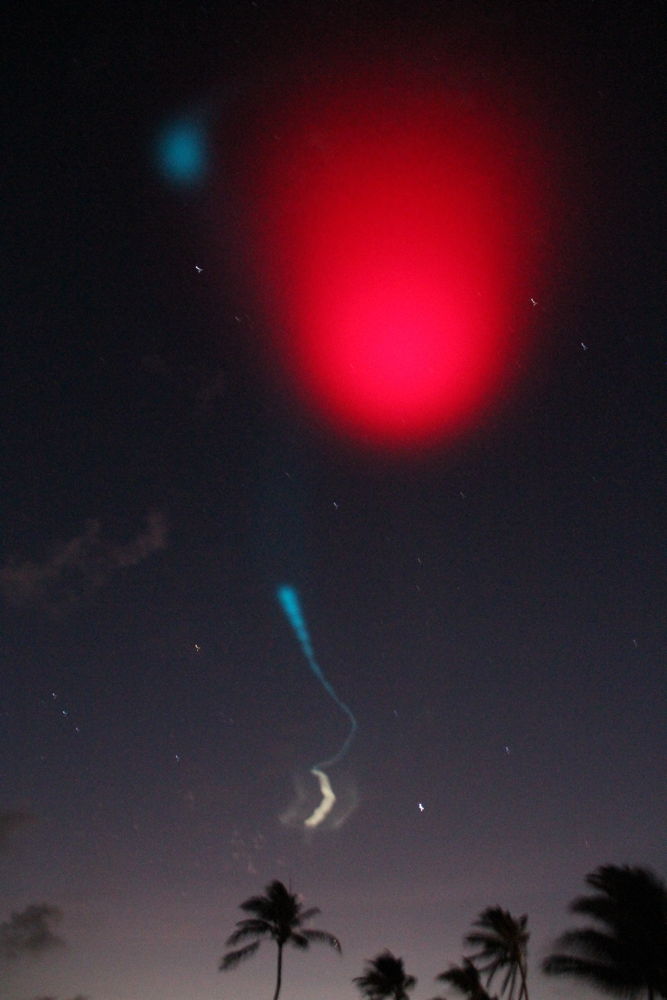
Red and white vapor clouds filled the skies over the Marshall Islands as part of NASA’s Equatorial Vortex Experiment (EVEX). The red cloud was formed by the release of lithium vapor and the white tracer clouds were formed by the release of trimethyl aluminum (TMA). These clouds allowed scientists on the ground from various locations in the Marshall Islands to observe the neutral winds in the ionosphere.
VISIONS Launch
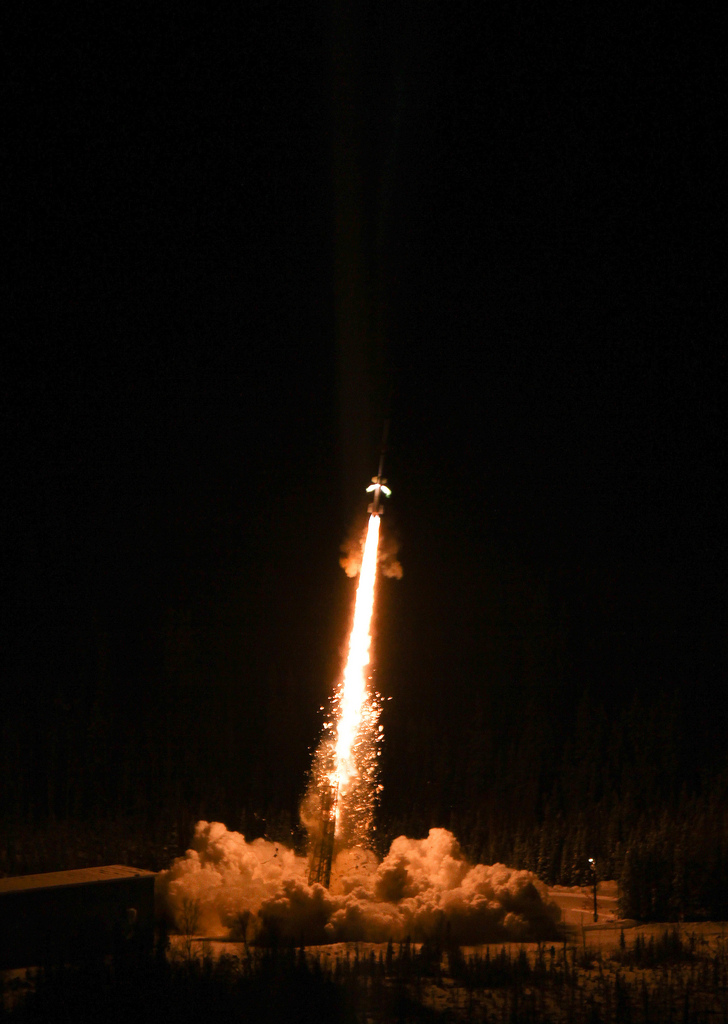
NASA’s VISIONS mission launched a rocket from Alaska into the northern lights on Feb. 7, 2013, to discover the secrets of auroras.
Get the Space.com Newsletter
Breaking space news, the latest updates on rocket launches, skywatching events and more!
A Green Aurora
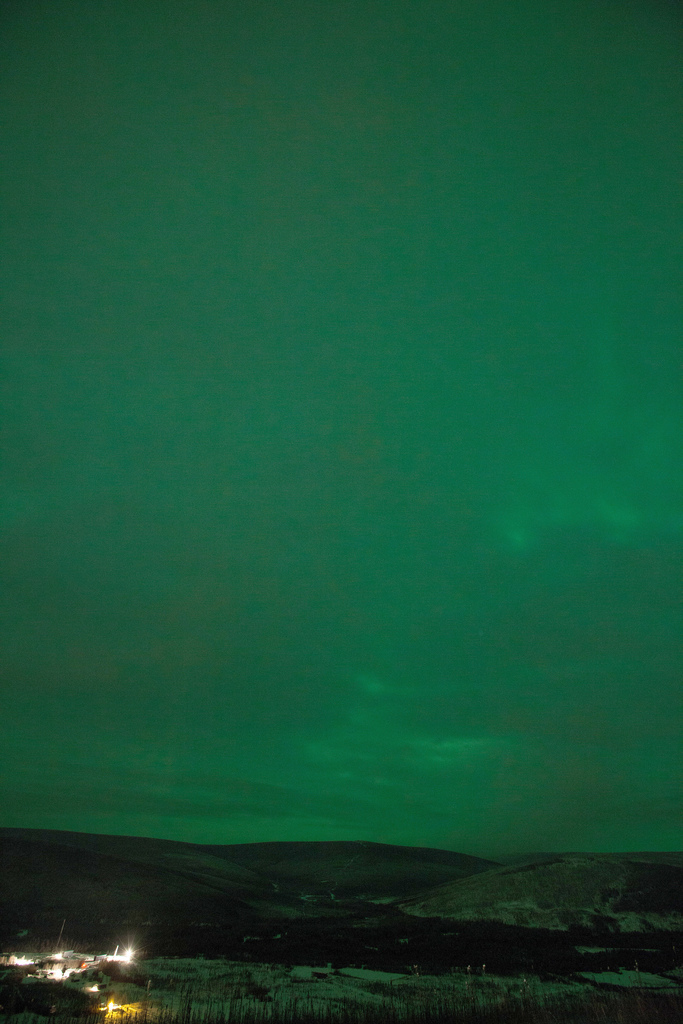
On the night of Feb. 6, 2013, a green aurora appeared in the Alaskan night sky. Conditions were finally right to launch VISIONS.
VISIONS Rocket Launch
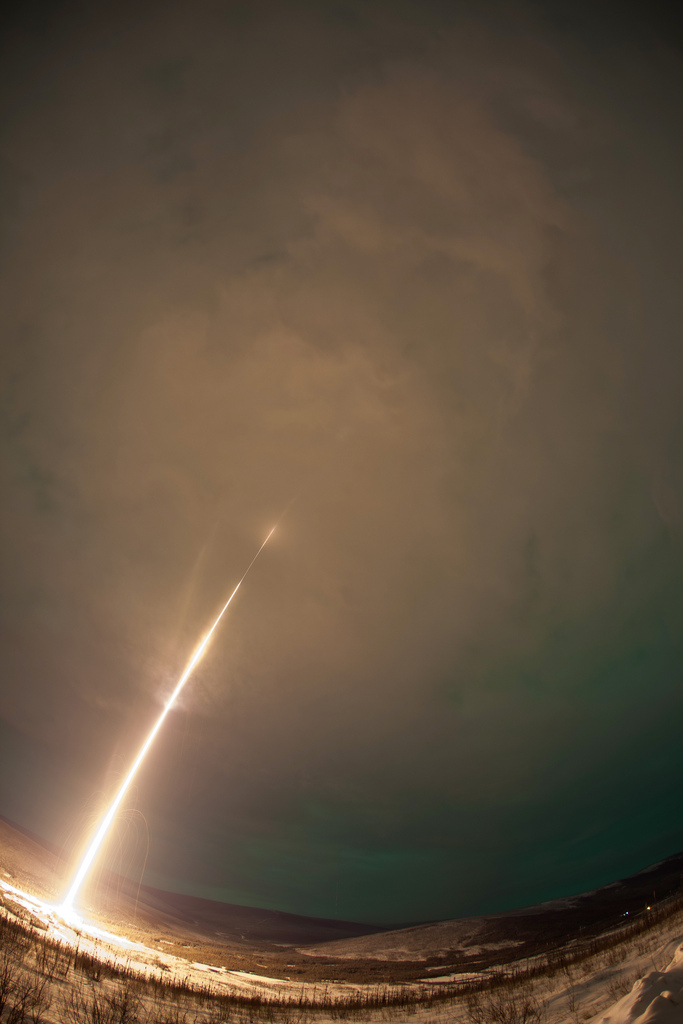
NASA’s VISIONS mission launched a rocket from Alaska into the northern lights on Feb. 7, 2013, to discover the secrets of auroras.
Rocket Launch VISIONS Mission
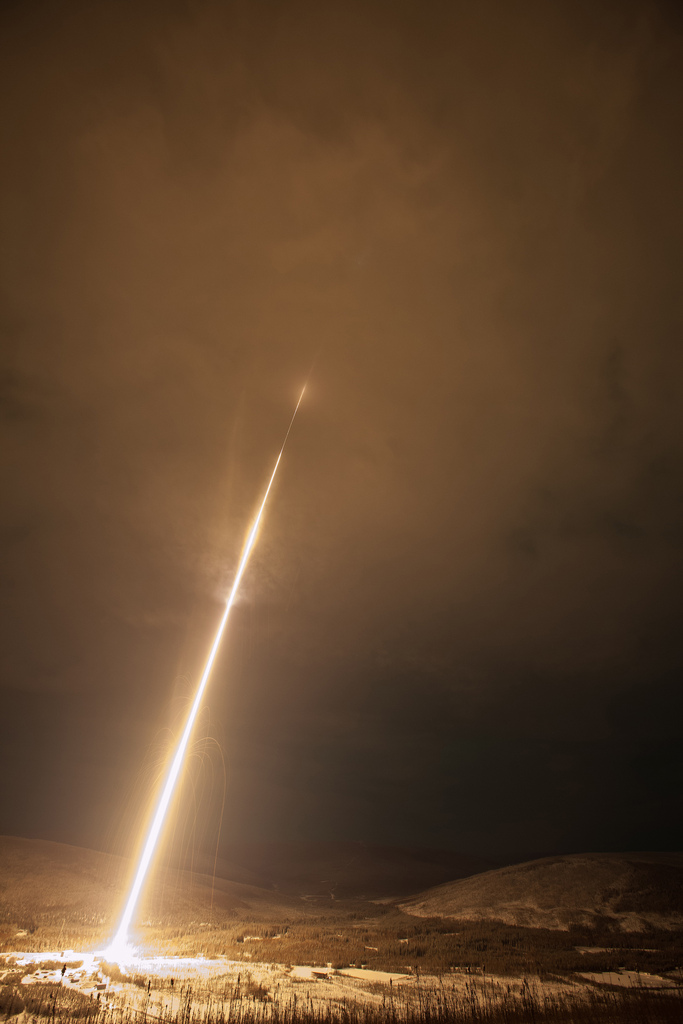
NASA’s VISIONS mission launched a rocket into the northern lights on Feb. 7, 2013, to discNASA’s VISIONS mission launched a rocket from Alaska into the northern lights on Feb. 7, 2013, to discover the secrets of auroras.over the secrets of auroras.
NASA Launches Sounding Rocket: Jan. 29, 2013
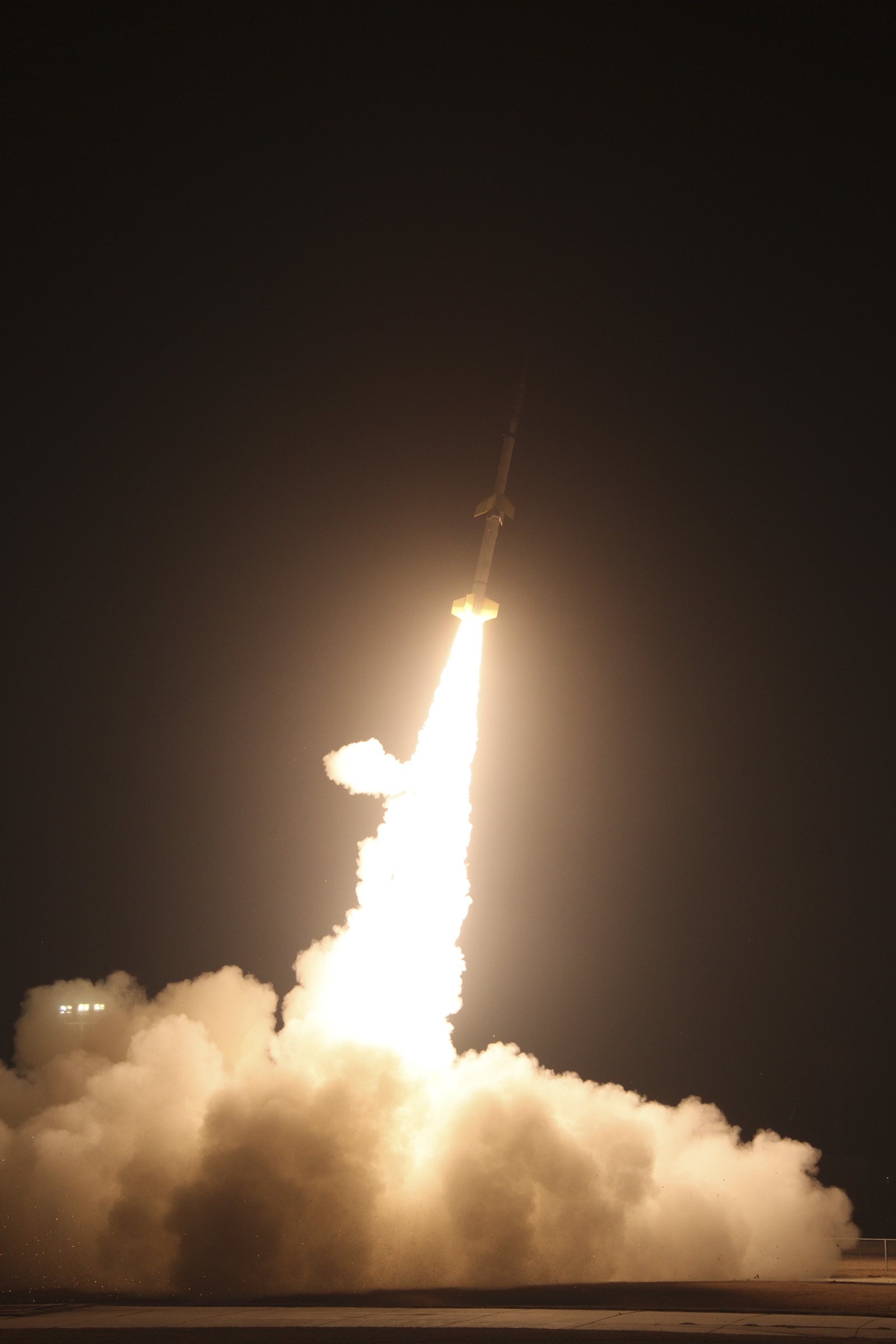
NASA’s VISIONS mission launched a rocket from Alaska into the northern lights on Feb. 7, 2013, to discover the secrets of auroras.
Join our Space Forums to keep talking space on the latest missions, night sky and more! And if you have a news tip, correction or comment, let us know at: community@space.com.

Space.com is the premier source of space exploration, innovation and astronomy news, chronicling (and celebrating) humanity's ongoing expansion across the final frontier. Originally founded in 1999, Space.com is, and always has been, the passion of writers and editors who are space fans and also trained journalists. Our current news team consists of Editor-in-Chief Tariq Malik; Editor Hanneke Weitering, Senior Space Writer Mike Wall; Senior Writer Meghan Bartels; Senior Writer Chelsea Gohd, Senior Writer Tereza Pultarova and Staff Writer Alexander Cox, focusing on e-commerce. Senior Producer Steve Spaleta oversees our space videos, with Diana Whitcroft as our Social Media Editor.









